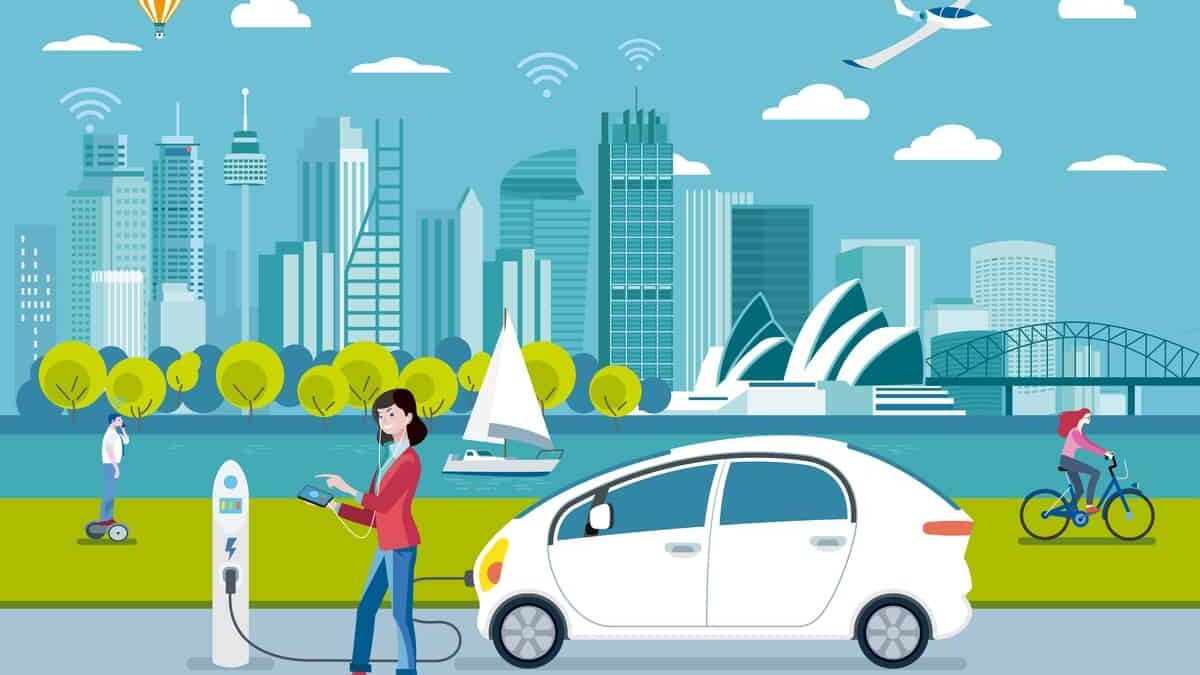A new study found two out of three Australians support changes to accelerate the shift to electric vehicles, including discounts to lower prices and a fuel efficiency standard to have more models in the country.
60% of Australians support petrol car sales ban
More than 60% of Australians support a ban on new petrol car sales by 2035.
In addition, the findings from The Australia Council’s Climate of the Nation report also supported more EV charging stations, electric buses, and the introduction of high-speed rail in Australia, as per SBS.
However, the report showed backing for electric transport decreased when it came to cutting tax breaks for large, fuel-powered four-wheel drives and utes.
Audrey Quicke, report author and Australia Institute transport lead, stated that the survey presented Australians wanted “to reap the benefits of the transition to clean transport.”
Findings for discounts, registrations, & fast-charging network support
78% supported a government-funded fast-charging network, 75% supported discounts for electric cars, and 69% supported discounts on registration, road tolls, and stamp duty for EV drivers.
More than two-thirds of respondents also like a national fuel efficiency standard to encourage automakers to import EVs to Australia — a topic in the National Electric Vehicle Strategy consultation paper which opened on September 28 and closed on October 31, 2022.
“Fuel-efficiency standards are a common policy mechanism to ensure new cars are more efficient and less polluting,” says Quicke.
“With 80% of the global car market already onboard, it’s high time Australia caught up and no wonder most Australians support this.”
Furthermore, the Climate of the Nation report noted that 64% of Australians supported a ban on selling new gasoline-powered vehicles by 2035 — a policy already set up in the ACT.
However, support for removing subsidies on large four-wheel drives was recorded lower among respondents, with only over half (55 %) supporting the change.
Quicke said, “The current tax system allows small business owners to write off the costs of new utes and heavy-duty vehicles,”
“However, many Australians support removing this perverse tax incentive that is currently fuelling the Aussie appetite for utes and heavy vehicles.”
Griffith University lecturer Dr. Anna Mortimore stated the result is not surprising as Australians would eventually support transport policies based on their wallets.
Dr. Montimore said, “One of the hardest areas to reduce emissions is in road transport because people have to lay out some money,”
“It’s about playing around with policies and tax rates. At the end of the day, you want the price of a combustion-fuelled vehicle to be the same price as an electric vehicle.”
Moreover, Dr. Mortimore said introducing a fuel-efficiency standard to enhance the supply and national tax incentives to lower cost could sway Australia from its electric “transition phase.”
Other report findings: better footpaths, tax incentives, EV transition, etc.
Other findings from the report included better footpaths, conversion to electric buses by 2030, support for connecting capital cities by high-speed rail, and tax incentives for electric bikes purchase.
More than 60% of respondents said EV subsidies should also be available for e-bikes and cargo bike purchases.
“E-bike subsidies are a particularly effective policy, as they cover a large portion of the total cost of the bike, which often ends up replacing car trips,” said Quicke.
“For many Australians, so many of the trips taken in a car could be replaced with a bike, e-bike or walking – whether it’s the grocery run, school drop-off or commute. What’s needed is better infrastructure and government support to make e-bikes more affordable.”

